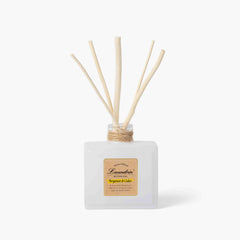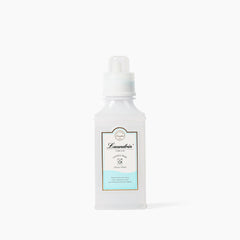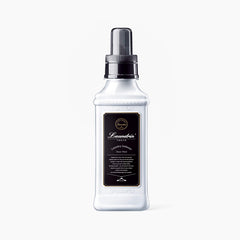Understanding Microplastics
Microplastics are minuscule plastic particles that originate from various sources. They are generally categorized into two types:
- Primary Microplastics: These are manufactured as small particles. Common examples include microbeads used in cosmetics and personal care products, and microfibres shed from synthetic textiles during washing.
- Secondary Microplastics: These result from the breakdown of larger plastic debris, such as plastic bottles, bags, and packaging materials. Over time, exposure to sunlight, wind, and water causes these larger plastics to fragment into smaller particles.
Sources of Microplastics
Microplastics come from numerous everyday items and activities, including:
- Cosmetic and Personal Care Products: Many exfoliating scrubs, body washes, and laundry products contain microbeads.
- Synthetic Clothing: Washing synthetic fabrics like polyester, nylon, and acrylic releases microfibres into the water system.
- Plastic Packaging: The degradation of plastic packaging and products contributes to secondary microplastics.
- Industrial Processes: Industrial processes and products, including abrasives used in manufacturing, also release microplastics into the environment.
The Environmental and Health Impact of Microplastics
Environmental Consequences
Microplastics are ubiquitous in the environment. They have been found in oceans, rivers, soil, and even the air we breathe. Their persistence and prevalence lead to numerous environmental issues:
- Marine Pollution: Microplastics contribute significantly to ocean pollution. Marine animals, including fish, seabirds, and mammals, ingest these particles, which can lead to physical harm, malnutrition, and even death. Microplastics can also accumulate in the food chain, affecting larger predators, including humans.
- Soil Contamination: Microplastics in the soil can affect plant growth and soil health. They can alter the physical and chemical properties of the soil, affecting its fertility and structure.
- Air Pollution: Microplastics can become airborne, contributing to air pollution and potentially being inhaled by humans and animals.
Health Risks
The health implications of microplastics are an area of ongoing research. However, there is growing concern about their potential impacts on human health:
- Ingestion and Inhalation: Microplastics can enter the human body through ingestion of contaminated food and water, and inhalation of airborne particles.
- Toxicity: Microplastics can absorb and transport harmful chemicals and pollutants. When ingested, these toxic substances can leach into the body, potentially causing inflammation, endocrine disruption, and other health issues.
- Cellular Damage: Studies suggest that microplastics can cause cellular damage and oxidative stress, leading to various health problems.
How to Avoid Microplastics
While it is challenging to completely avoid microplastics, there are steps you can take to minimize exposure and reduce environmental impact:
- Choose Microplastic-Free Products: Opt for personal care and cleaning products that do not contain microbeads. Look for certifications and labels that indicate the absence of microplastics. At Laundrin Tokyo, we pride ourselves on offering products that are entirely free from microplastics. Our fabric softeners, for instance, are formulated with natural, plant-based ingredients that ensure your fabrics remain soft and fragrant without the risk of microplastic contamination. By choosing Laundrin Tokyo, you are taking a proactive step in reducing microplastic pollution and protecting your health and the environment.
- Select Natural Fibers: When buying clothing, choose natural fibers such as cotton, wool, or silk instead of synthetic materials. Natural fibers are less likely to shed microplastics during washing.
- Use Washing Machine Filters: Install filters in washing machines to capture microfibres from synthetic clothing. These filters can significantly reduce the number of microplastics entering wastewater.
- Reduce Plastic Use: Minimize the use of single-use plastics and opt for reusable or biodegradable alternatives. This helps reduce the overall amount of plastic waste that can degrade into microplastics.
- Support Eco-Friendly Brands: Choose brands committed to sustainability and reducing microplastic use. Look for companies that prioritize environmental responsibility in their manufacturing processes and product formulations. Laundrin Tokyo is dedicated to producing eco-friendly products. Our commitment to using plant-derived ingredients and avoiding harmful chemicals ensures that our fabric softeners are safe for both the environment and your family.
Laundrin Tokyo’s Commitment to Being Microplastic-Free
At Laundrin Tokyo, we recognize the importance of creating products that are both effective and environmentally responsible. Our commitment to quality and safety ensures that our products are free from microplastics, making them a safer choice for your family and the environment.
Key Benefits of Laundrin Tokyo Products:
- 100% Plant-Derived Ingredients: Our fabric softeners are formulated with natural, plant-based ingredients. This ensures they are gentle on your fabrics and free from harmful microplastics.
- Safe for Babies and Pets: Our products are designed to be mild and safe for use around sensitive skin, including babies and pets. By avoiding microplastics, we ensure our fabric softeners do not contribute to environmental pollution or pose risks to your loved ones.
- Environmental Responsibility: Laundrin Tokyo is dedicated to sustainability. Our microplastic-free formulations align with our broader efforts to reduce environmental impact and promote a cleaner, healthier world.
Why Microplastic-Free Matters
Choosing products that are free from microplastics is a significant step towards protecting both your health and the environment. Here’s why it matters:
- Healthier Living Environment: By using microplastic-free products, you reduce your exposure to potentially harmful substances. This is particularly important for vulnerable groups such as infants, young children, and pets.
- Environmental Protection: Supporting brands that avoid microplastics helps reduce pollution and its impact on ecosystems. Every small change contributes to a larger effort to protect our planet.
- Setting a Positive Example: Making conscious choices about the products you use can inspire others to do the same. Together, we can create a collective impact that drives change and encourages more sustainable practices.
Join the Movement with Laundrin Tokyo
At Laundrin Tokyo, we are proud to offer products that prioritize your well-being and the health of our planet. Our luxurious fabric softeners, free from microplastics, are a testament to our commitment to sustainability and quality. By choosing Laundrin Tokyo, you’re not only enhancing your laundry routine with sophisticated fragrances but also supporting a brand that cares deeply about the environment and your family’s safety.





